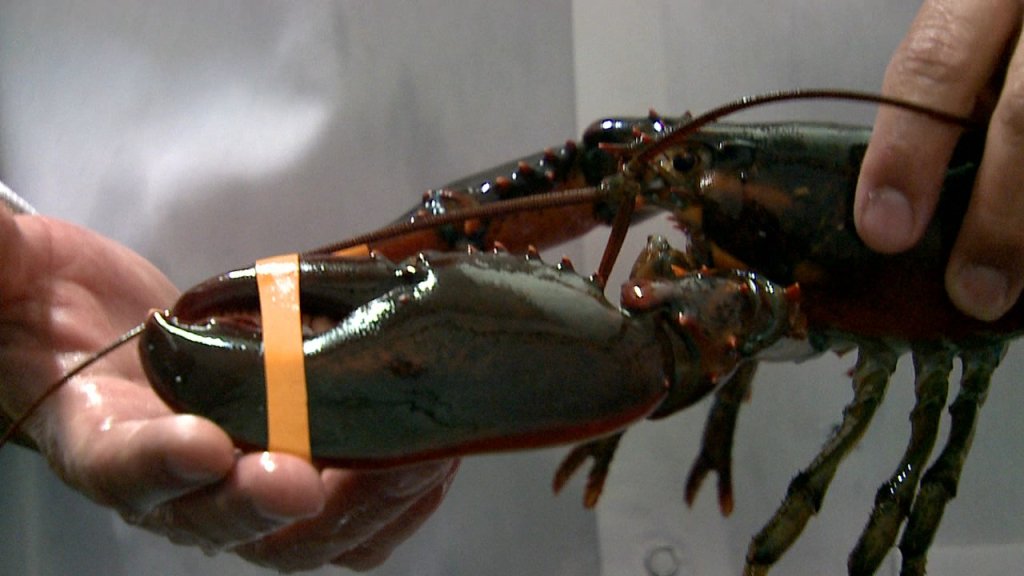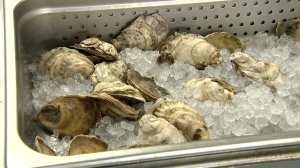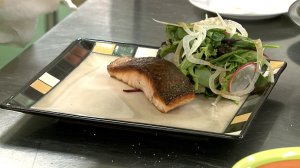DENVER — If you enjoy seafood in our landlocked state, you’ve probably asked yourself: “How safe is it?”
The Problem Solvers are diving deep for a look at how local, state and federal inspectors — as well as suppliers — ensure seafood is safe to eat.
Inside a massive refrigerator at Denver’s Seattle Fish Company, one will find all kinds of seafood.

The wholesaler supplies hundreds of restaurants and grocery stores with fresh and frozen varieties.
Seattle Fish Company President Derek Figueroa invited FOX31 for a tour of their operation.
“Food safety is really paramount,” Figueroa said. “It’s really about how we receive fish… we source fresh fish. It’s fresh when it comes in and safe.”
The 101-year-old company prides itself in knowing where each product is caught.
“We can track where (each) fish is caught. We can capture that data and provide that to consumers,” Figueroa said.
The company uses state-of-the-art technology like special thermometers that calculate the temperature of a product every two minutes.
“We have special garb and foot protection. We have chemical baths if you go from room to room. We use lots of sanitizer,” Figueroa said. “We use ozone inside our facility to knock down bacteria.”
Once inside a restaurant like Liberati Restaurant and Brewery in Denver, local inspectors do specific seafood checks that begin at the source.
“Our goal during inspections is to make sure food is from an approved source,” said Kristin McEachran, an inspector with Denver’s Department of Public Health and Environment.
McEachran told the Problem Solvers that each facility mush have information on site regarding where the fish was caught and proof that any parasites were destroyed.
“Parasites can be embedded in the muscle tissue, so we want to make sure that those parasites are being destroyed,” McEachran said.
Food experts say fish must be frozen at -4 degrees Fahrenheit for seven days to kill parasites.
Food experts also look for shellfish tags which show where the oysters or lobster originated.

“We have concerns about the source — where they are being harvested,” McEachran said. “Shellfish are filter feeders. They tend to accumulate where sewage may be.”
The main health concern is Hepatitis A. That’s why restaurants must keep the tags for 90 days.
“There is a possibility of contracting Hepatitis A from eating raw shellfish and because of the incubation period, we need to keep the tags that long,” McEachran said.
And if you are not a sushi lover, make sure the fish is cooked at 145 degrees Fahrenheit until it becomes opaque and begins to flake.
Finally, seafood experts also recommend picking credible restaurants such as 12 at Madison in Denver’s Congress Park neighborhood. They utilize international programs like Smart Catch and Seafood Watch that help chefs obtain quality ingredients.
“It’s a program for chefs by chefs,” said Jeff Osaka, a chef at 12 at Madison.

Smart Catch promotes seafood sustainability and directs chefs on what to buy.
“It’s really to promote sustainable seafood throughout the restaurant industry. It creates awareness among other chefs or the industry in general — that seafood is a delicate product that we use,” Osaka said.
So, the next time you sit down to feast on fish, look for clear eyes and red gills. Also, trust your nose — avoid things with a bad odor.
Also, know inspectors and suppliers have a very close eye on the thousand-mile journey some seafood travels before it’s on your table.
The Food and Drug Administration and state experts inspect wholesale locations like Seattle Fish Company. When the Problem Solvers checked those inspections, we did not find any major issues.
LINK: Seattle Fish Company inspection
There are Colorado fish farms like Frontier Trout Ranch and Colorado Catch that can satisfy trout and striped bass lovers. The local farms raise fish in fresh water and offer an alternative to frozen varieties.
